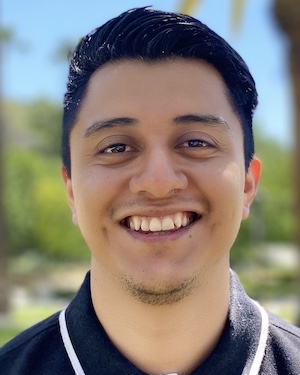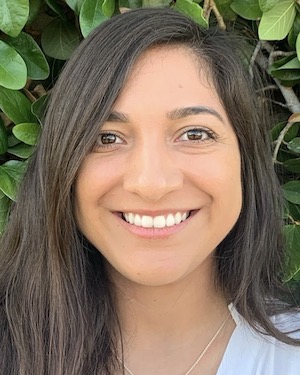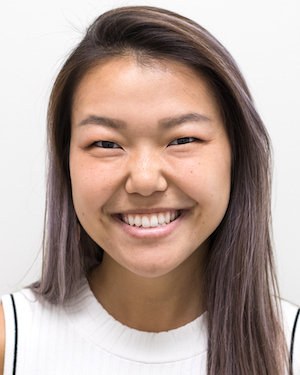Student Blog
Admissions

So, You Have Submitted Your Application ⟩
September 11, 2020, by Lamoni
Admissions
It is that time of the year when potential students are pressing that “submit” button! If that is you, congratulations! Completing applications is undoubtedly the most stressful part of applying to schools. You have completed all of your pre-requisites, spent several hours observing, gathered recommendation letters, wrote an impressive personal statement, sat 4 long hours to take the GRE, and maybe did a couple of interviews as well — CONGRATULATIONS! Please give yourself a pat on the back. Those are a lot of steps; You have already accomplished a lot.
But, nobody talks about the waiting game. This is also a very stressful time. I remember the big sigh of relief when I turned in all 9 of my OT school applications (Thank goodness for OTCAS am I right?). However, the feeling of relief was fleeting. Getting into OT school is a very competitive process and it only gets more competitive each year. The daunting question of “What if I don’t get in?” crossed my mind soon after submission.
I also had feelings of guilt because the number of things on my plate had significantly decreased. When applying, I was working, taking classes, observing, and studying. After, all I had to do was work. I was no longer extremely busy, and I felt weird about it. Was I doing enough? Should I be doing more?
I was also on OT blogs and OT reddit posts non-stop. Once people started posting their acceptances and rejections, the anxiety was unbearable. I started having dreams about checking my email!
It should not have been that stressful. That should have been my time to take a step back and breathe. If you are going through the same challenges that I went through, here is what you should do:
Create a Plan
Honestly, rejections happen. Sometimes it takes more than one try to do anything and that concept applies to getting into OT school. But it is not the end of the world. So, let’s not think of it that way. Instead, have a just-in-case plan ready. That way, if you are not accepted this time around, you will have action steps in your back pocket.During the wait, get the contact information for the directors of admissions at each of the schools you applied to. Most programs will allow you to reach out and ask about ways to strengthen your application. This way, you can have concrete suggestions on what to do instead of wondering where to start. For USC, here is the admissions team contact information.
Because we are all our biggest critic, you probably already have areas of your application that you would like to improve. For example, do you feel like you could have done better on the algebra section of the GRE? Do some practice algebra questions from time to time. Now that you have been through the process once, you have an idea of what you should focus on.
Stay (kind-of) Busy
Now that you have gotten into the routine of preparing your applications, it can be hard to break it. You don’t have to! Not all the way, at least. There’s no need to take more classes or revise your personal statement—that’s done. However, you can continue to observe and volunteer. It never hurts to increase your understanding of OT. See what the OTs in your area are doing in a variety of settings. Are most of your observation hours in pediatrics? Try mental health. Combine the two and try pediatric mental health. Did you mainly volunteer at camps? Try volunteering at a nursing home this time. This way, you are not only learning more about the profession, you are building your network. And continue to document these hours because . . . why not. Again, it doesn’t hurt.
Put Your Phone Down and Close Some of those Tabs
Why are you frantically checking your emails? It’s still September. They aren’t even sending out acceptance letters yet. Oh, and close all 6 of those forum tabs. The two YouTube videos named “how to get into OT school” is enough.
You spent more than enough time on your phone and computer during the application process. You have already seen and noted what’s on these forums and in these videos. Take a bit of a break.
Waiting is tough. Feeling like you are in lingo is challenging. But you have already done what needs to be done. Be patient with yourself and patient with the process. Add some time to your sigh of relief.
⋯

5 Things I Wish I Knew Before Applying to USC Chan OTD Residencies ⟩
August 31, 2020, by Daniel
Admissions Life Hacks
This is a time when many of you may be wondering what to do in regards to OTD Residencies. Should I apply to the USC Chan Residencies, should I wait, perhaps it’s best to go into the work field right after graduation, so many things to think about. Regardless of where you find yourself, the deadlines will come and you will have to make a decision. And I understand that feeling of having to make life decisions in a matter of months/weeks, as I was in your shoes exactly a year ago. There is a lot to consider when applying to the OTD, whether it’s finances, time commitment, residency options, etc. Everyone’s experience is very different, and hopefully the following tips can help you or someone you know that is applying to USC Chan OTD Residencies.
1. Start Your Resume Early
If you have not updated your resume in a while, then now it’s the time! I would recommend you start putting together your resume and updating it early in the semester before it gets busier. Get other people to review your resume! This will be very helpful to catch things you may have missed and get a different perspective on the information presented on your resume.
Below are some helpful tips:
Resume Checklist
- No spelling, grammar, or punctuation errors
- 1-2 pages
- Make it organized, concise, and easy to read
- Use standard fonts (i.e., Times New Roman, Arial, Century, Helvetica, or Verdana
- Font size 10, 11, or 12
- Quantify accomplishments, if possible (i.e., funds raised, timespans, percentages, etc.)
- Utilize accomplishment statements (i.e., action verbs, how you did it, results)
Resume Format Guidelines
- Contact Information
- Education
- Experience
- Leadership and Activities
- Professional Associations
- Additional Information
- For additional information and tips, I highly recommend you check the USC Career Center resume resources.
2. Interview Preparation
Research your OTD Residency & site:
- Know the site’s mission and the goals of the residency (if available)
- Read their website
- Read any published materials and/or presentations
- Follow their social media (if available)
- Reach out to faculty/staff associated with a particular OTD Residency
- Talk to current and/or former OTD Residents
- Talk to classmates that had fieldwork at a particular site
Prepare questions for the interviewer:
As you learn more about each residency, write down questions you may have and ask them prior to applying or during the interview. This is a great way to show that you are informed and genuinely interested about the work they are doing! This will also help inform you if this would be a good fit and something you want to pursue!
Practice interview skills:
- Practice with someone who can give you feedback (i.e., friend, classmate, mentor, etc.)
- Practice articulating your thoughts
- Practice via Zoom! Get comfortable doing virtual interviews
- The USC Career Center offers additional resources to prepare for in-person and video interviews! They have an online mock interview platform to record yourself responding to pre-recorded prompts and questions to get an idea of how you appear on camera in an interview setting.
There are many questions they can ask you, so focus on big picture ideas that highlight your level of interest/commitment and your ability to handle the demands of the residency position:
- Why do you want to pursue the OTD?
- Why did you decide to pursue a career in OT? (I know this question may feel repetitive, but it’s always good to highlight your passion for wanting to be an OT).
- Do you have a story or personal connection to the residency that has led you to be so passionate about this type of work.
- What skills have you obtained as a Master’s student that will help you excel as an OTD Resident?
- What do you hope to gain from the OTD? What are your goals?
3. Your OTD Residency Does Not Define Your Career Path
Choosing to pursue the OTD is already a tough decision, and choosing a particular residency can be even more difficult! As you are looking through the different options available, I just want to remind you that choosing to do a residency in a particular field does not define where you will end up working after graduation! Sure, your focus will be within that particular field during residency, and it if it leads to a job than even better! But don’t feel like you are unable to pursue other practice areas, remember that every job provides training! There have been OTD residents that graduated and found jobs in a different practice area than their residency. The OTD offers an opportunity to further develop your clinical expertise and leadership skills, to help drive changes across various health and human services organizations.
4. Utilize Your Resources
- Look back at resume and interview resources from other classes such as OT 523 Communication Skills for Effective Practice
- Utilize available USC Career Center Resources via connectSC!
- Contact the OTD Student Ambassador (me) for any questions regarding the OTD.
- Feel free to reach out via email, text, social media, etc. (Email: .(JavaScript must be enabled to view this email address), Phone: (818) 571-8222)
- Lastly, Dr. Amber Bennett and Dr. Sarah Bream are also available to answer any OTD questions
5. Be Excited!
You have made it this far and looking into OTD residencies is stressful but also exciting! There are so many great opportunities you can pursue and places where you can help make an impact. Prepare, be curious, ask questions, and trust yourself! The only thing you can do is try your best and give it your best shot. And no matter what you decide to do or the outcome, every semester you are one step closer to becoming an amazing OT!
⋯

Crafting a Personal Statement ⟩
August 26, 2020, by Savi
Admissions
During my application process, I wanted to make sure that I would stand out. I spent weeks worrying about what I could do to make the admissions team stop and say “WOW” when reading through the hundreds of applications they received that year. This was stressful, to say the least. I felt as though everyone else applying also had good grades and GRE scores. I volunteered in a variety of clinics, held leadership positions in multiple organizations, and participated in an OT research lab throughout my undergraduate career but I knew that most applicants were also very involved. Despite all these achievements I continued to worry about how I could stand out! What would grab the admission counselor’s attention? I soon realized it would have to be my Personal Statement.
The USC Chan Personal Statement was my time to shine. I spent weeks drafting different ideas about what I thought the admissions team wanted to hear. I spoke about my leadership, my academic success, etc. Each time I would read over the new version I didn’t think it was good enough. After speaking to my sister about my dilemma and having her read over my outline she turned to me and said, “Savi we all know you are successful. Now tell them who you are beneath all the success. Who is Savi and why are you built to be an OT?” This quickly made me realize that I had been spending my time writing a personal statement with the sole purpose of impressing the admissions team. Instead, I needed to focus my energy on finding one story that exemplifies who I am and how I fit into the Chan community.
I deleted my list of achievements and started fresh. I brainstormed ideas of when I had implemented techniques similar to OT intervention in a non-traditional setting. I did this because I wanted to demonstrate that my imagination would benefit me as both an OT student at USC and as a future OT practitioner. I landed on my experience as a Human Resources intern at a start-up tech company after my freshman year of college. During my time at this company, I noticed that employees led a primarily sedentary and ergonomically insufficient work lifestyle. I, therefore, focused my time as an intern on developing an innovative approach to educate and enable the employees on adopting a healthy and ergonomically sustainable lifestyle in the office. I used the company’s core values, personalities, and goals to develop the perfect “interventions” based on their needs, including a wellness competition, games to engage in physical activity, and workshops on how to set up their workspace to promote sustained engagement and success.
Looking back on this internship I realized how aligned my innovation skills were with OT techniques. Naturally, I found myself understanding the importance of exploring clients’ situational context, personality, and environment in order to develop innovative treatment plans that promote engagement in meaningful occupations. This story exemplified that even before I decided to pursue a career in OT I utilized the leadership and career opportunities I had to use my creativity to help others . . . sounds kind of like an OT right!? Was this internship the biggest success I have ever achieved? No. Does everyone else applying also have work or internship experience? Yes. Although the experience of being an intern may seem common and unoriginal, I was able to dive deeper into how I utilized one of USC Chan’s core values to demonstrate who I am and what kind of OT I want to be. So dive deeper into those “regular or unoriginal” experiences in order to demonstrate how you made it extraordinary just by being yourself!
You can find more application advice from our Director of Admissions, Dr. Arameh Anvarizadeh in this video!
⋯

I’m waitlisted . . . now what? ⟩
June 23, 2020, by Liz
Admissions
Prior to being admitted into the program, like several other applicants, I was waitlisted. After feeling as though I had tried my very best to look like a competitive applicant, it was definitely discouraging to know that I didn’t make the cut. Not to mention, being placed on the waitlist feels like you are waiting a lifetime. After religiously checking my email with the hopes of receiving some good news, a spot did not become available for me that year. So, that meant a whole year of “what now?!” I had just graduated from CSUF, quit my tutoring and campus bookstore jobs, and felt completely lost. I was supposed to get into grad school — that was the plan! After about a week of feeling upset and wondering what I was going to do, I decided to take a closer look at how I could improve and strengthen my application for the following cycle.
First, I decided to find a job. I looked into OT related jobs that would give me more experience. Working with kids was something I was interested in besides hand therapy, so I applied for a job as a behavior therapist. Although ABA is not the same as OT, I thought it would be a good way to get more comfortable working with kids and their families. My experience working for that company was amazing! I worked with kiddos 1:1, joined in on OT consults and was also able to lead a social skills group for children of different ages. Fortunately, I was also able to get a second job working as an occupational therapy aide for a hand therapy clinic. If you’ve read my previous blog posts you’ll know I have a personal connection to working with individuals with hand injuries. Getting some hands on experience (pun intended) by working at that hand clinic really solidified my passion for that area of practice! If I would have been admitted when I applied, I wouldn’t have had either experience. So, long story short — you never know what you’ll learn! You may discover a new passion within OT that you didn’t know was for you or a passion you already had can become that much stronger.
Another tip is to reach out to the admissions team and talk to them about your application. I personally didn’t reach out, mostly because I didn’t know it was a thing. As I’ve mentioned before my parents never pursued a higher education, so unfortunately they couldn’t provide much guidance there. However, my good friend Calvin, was able to get in touch with admissions when he was waitlisted himself. Feel free to connect with him to speak to him more about his experience with that.
Although you may be feeling a mix of emotions, don’t be discouraged! Take this as an opportunity to grow and keep working towards your goal. As cheesy as it sounds, everything happens for a reason. Another thing I should mention is that the first time I applied for the program I applied with one of my great friends from undergrad. We spent hours working on applications and our personal statements together. To my dismay I was waitlisted, but my friend was admitted. Although I was happy for her I couldn’t help but feel sad! However, what I later discovered was that there was a reason we didn’t get admitted together. There was a chance we would have felt comfortable with each other and closed off socializing with new people. Now that I have started my second year in the program I couldn’t be more grateful! I met some of my best friends from not being admitted the first time and I will be moving in with them this fall.
It’s important to note that everyone’s situation is different. Marilyn put together a wonderful video featuring two other students, one of them being Daniel Padilla — who is now our OTD student ambassador! Feel free to check out her video. And again, don’t hesitate to send me an email if you have any questions or would like to connect!
⋯

Throwback Thursday ⟩
February 20, 2020, by Kaho
Admissions Externships Housing and Transportation International Life Hacks Living in LA What are OS/OT?
As I was brainstorming what to write for my upcoming blog posts, I found myself at a complete blank. Nothing came to mind. I thought, what unique information can I provide as a student? As an ambassador? Social media chair? Then, a lightbulb switched on. Why don’t I take advantage of the data I’ve learned to analyze this year and make a compilation of other amazing blog posts? So, here we are. Here are the top 10 most popular blog posts from past and current student ambassadors (from Jan 1, 2015 through today), according to page views by you all! There are some oldies but goodies and they’re all definitely worth a read, so check them out.
- How to write a personal statement
- How to explain what occupational therapy is
- A Leadership Externship experience in South Korea
- A breakdown of the workload/life of an OT student
- Pros and cons of living at Currie Hall
- Pros of living in OT House vs. Pros of living somewhere else
- A different Leadership Externship experience in South Korea
- Pros and Cons of living in OT House
- Incorporating yoga into occupational therapy
- The role of occupational therapy in oncology
Hope you find these helpful!
⋯







